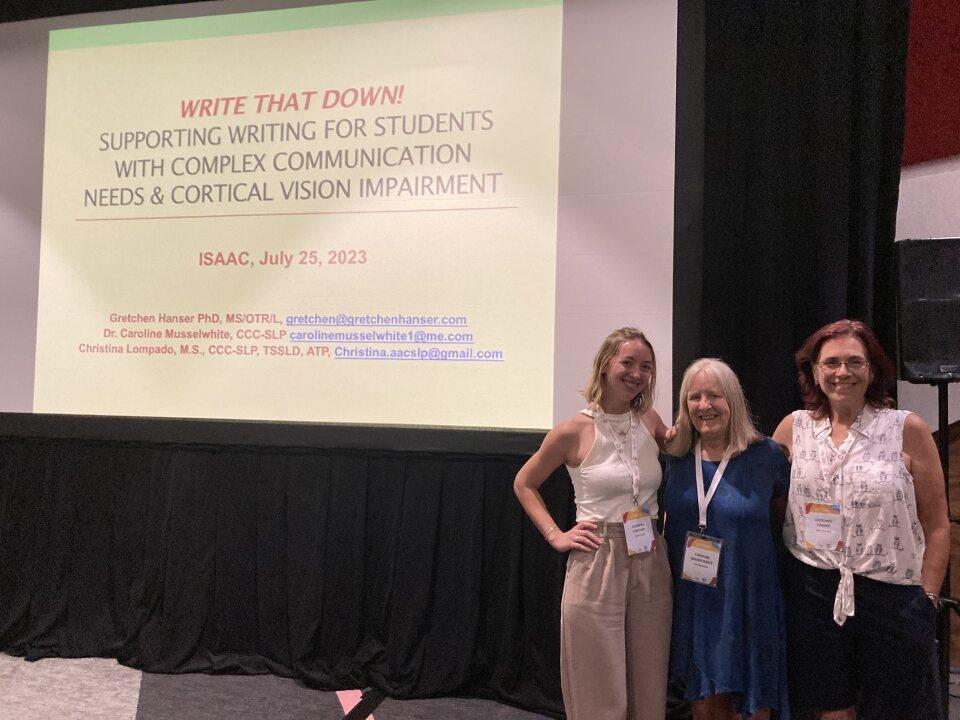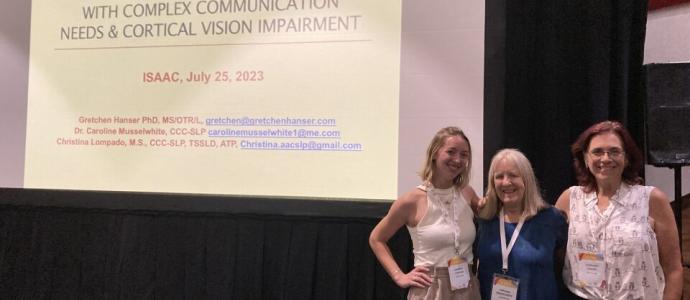
Staff at iHOPE have been busy spreading the word about the cutting-edge work in augmentative and alternative communication (AAC) and literacy that is happening at the school.
In July, Gretchen Hanser, Director of Assistive Technology and Literacy Instruction at iHOPE, and Christina Lompado, a senior Speech Language Pathologist in iHOPE's AT Department, attended an international conference hosted by the International Society of Augmentative & Alternative Communication (ISAAC) in Cancun.
The conference focuses on using AAC, including literacy instruction, to support people who cannot use verbal speech to communicate. Attendees learned about the latest communication devices, activities, and strategies to teach people to communicate using AAC and to read and write.
Hanser and Lompado presented alongside Dr. Caroline Musselwhite, an international leader in the field of AAC/Literacy. Their presentation, “Write That Down! Supporting Writing for Students with Complex Communication Needs & Cortical Vision Impairment” dove into different ways that writing can be taught to kids who have significant disabilities. One such way is using an "alternative pencil," which is a type of assistive technology that provides a student with access to the whole alphabet for use in writing in a way that doesn't require an actual pen or pencil.
For example, an eye gaze device with an onscreen keyboard or enlarged keyboard can be used for students who have difficulty using their hands. A print flip chart or tablet-based onscreen keyboard may be helpful for students who are learning to use switches.
“Historically and even currently, people have said that this population of kids aren’t ready for writing, but if we never give them a chance to learn it in a way that accommodates their individual needs, they are going to have great difficulty developing this very fundamental literacy skill,” said Hanser. “However, at iHOPE, staff have high expectations and have embraced the idea of giving our students access to alternative pencils. Through collaboration and integration of writing with alternative pencils into the curriculum, we have had great success and are seeing our students develop as writers. It's incredibly exciting and even more exciting to share this in our field and to show professionals that this is possible."

